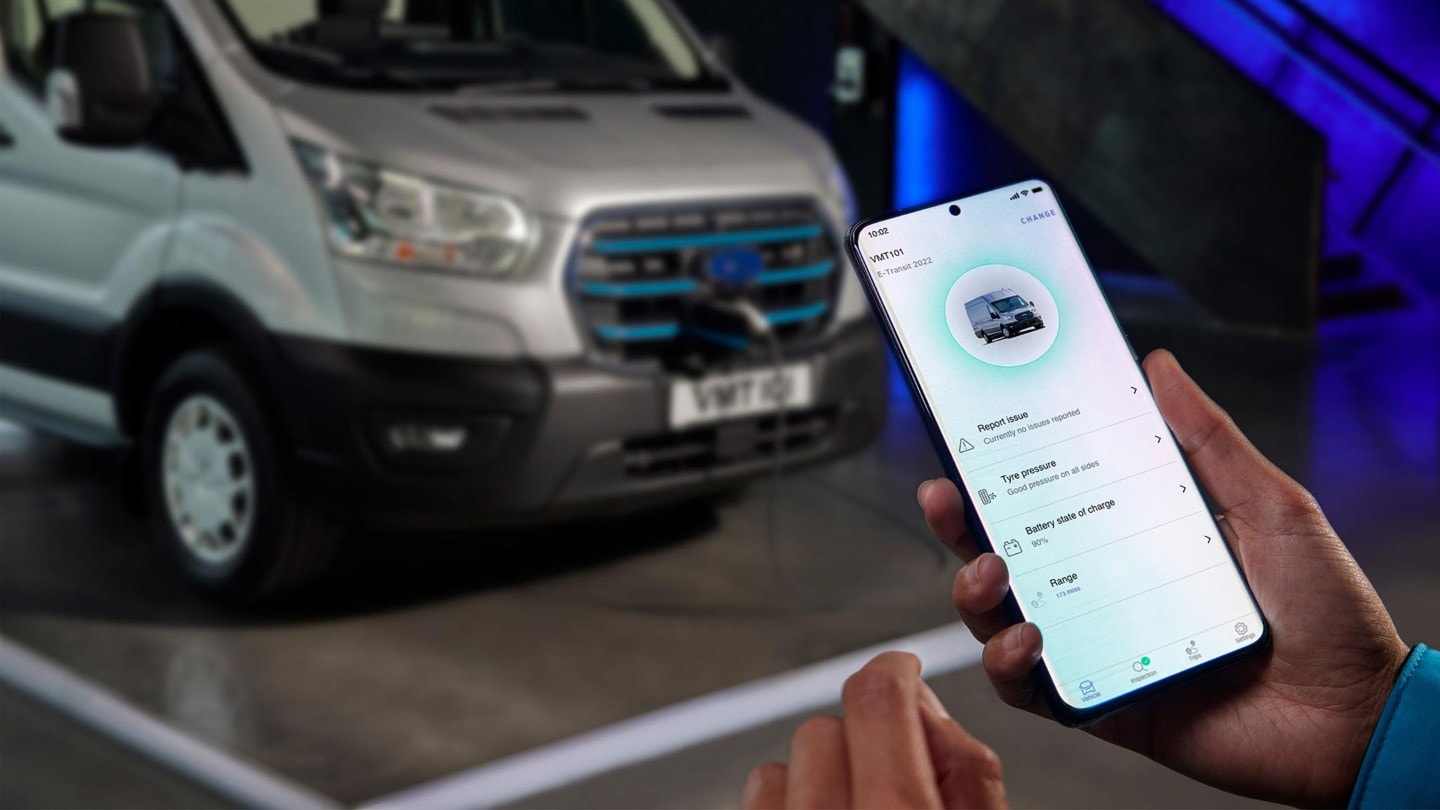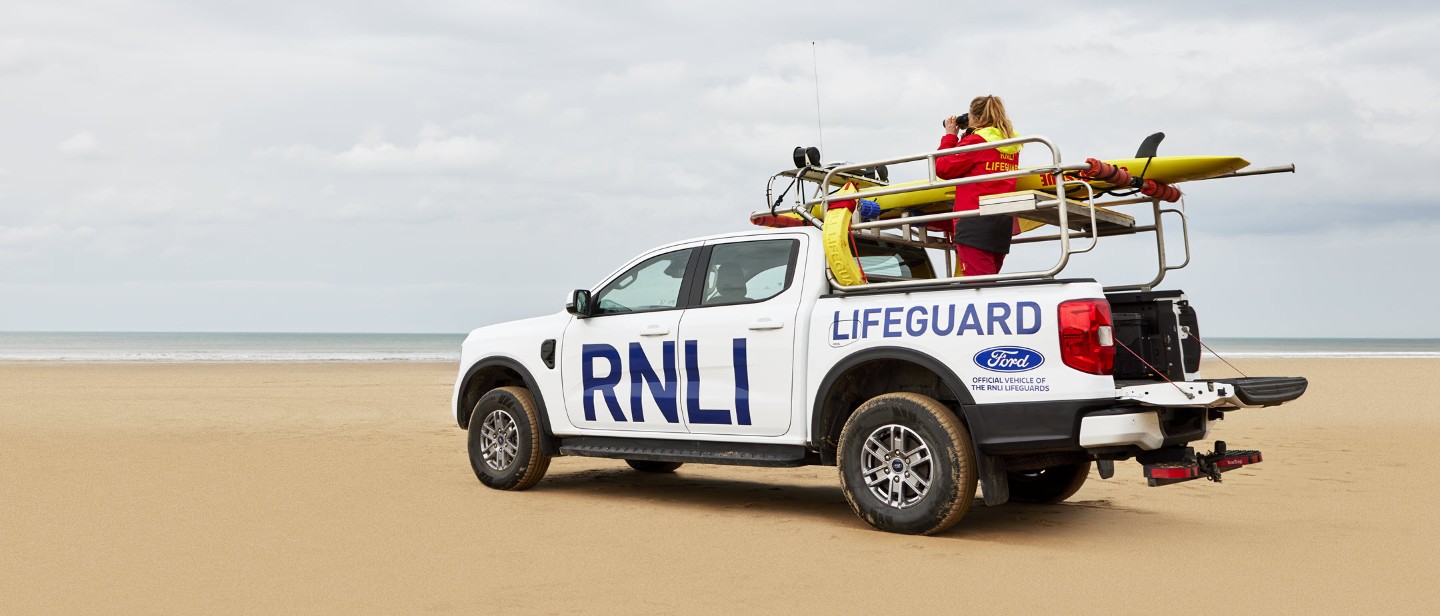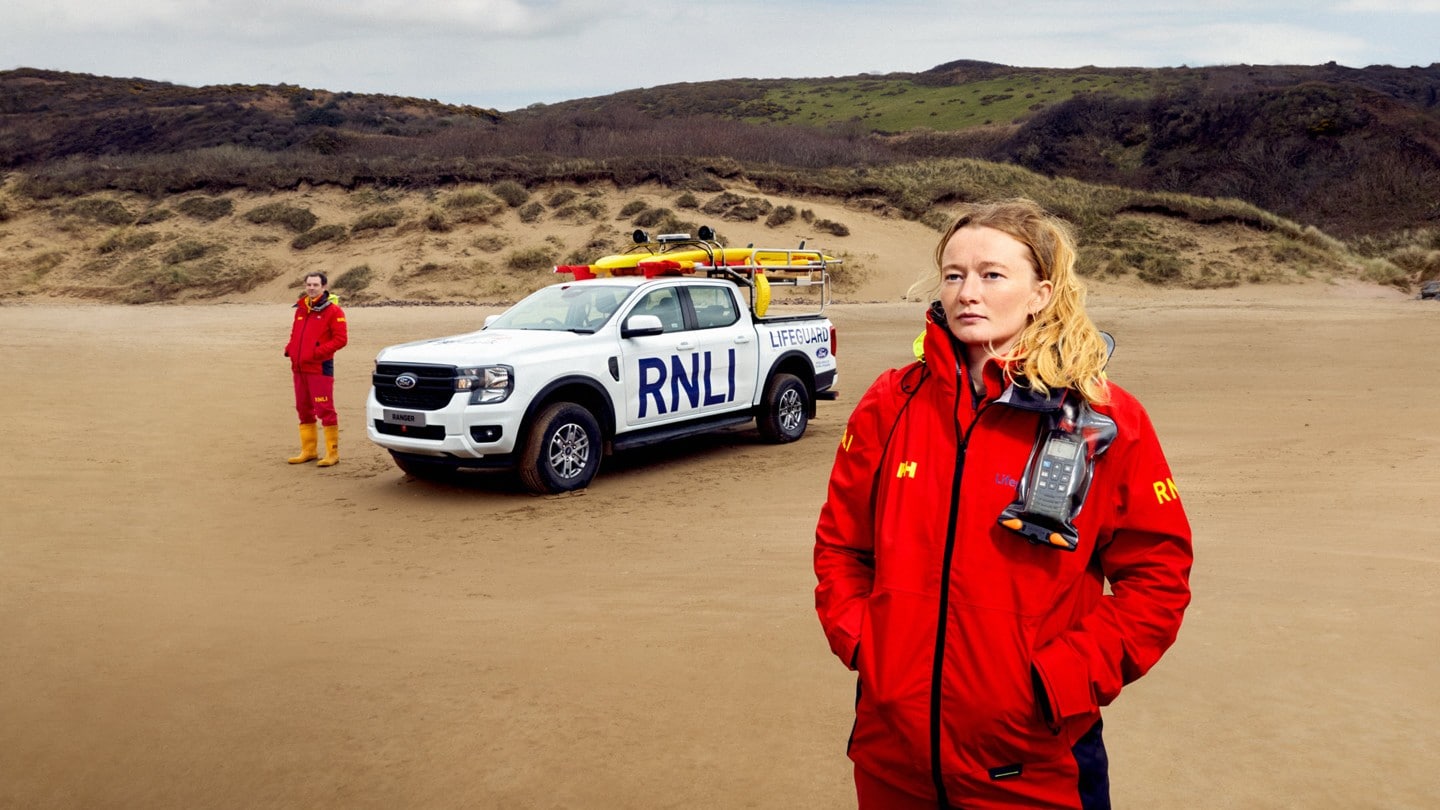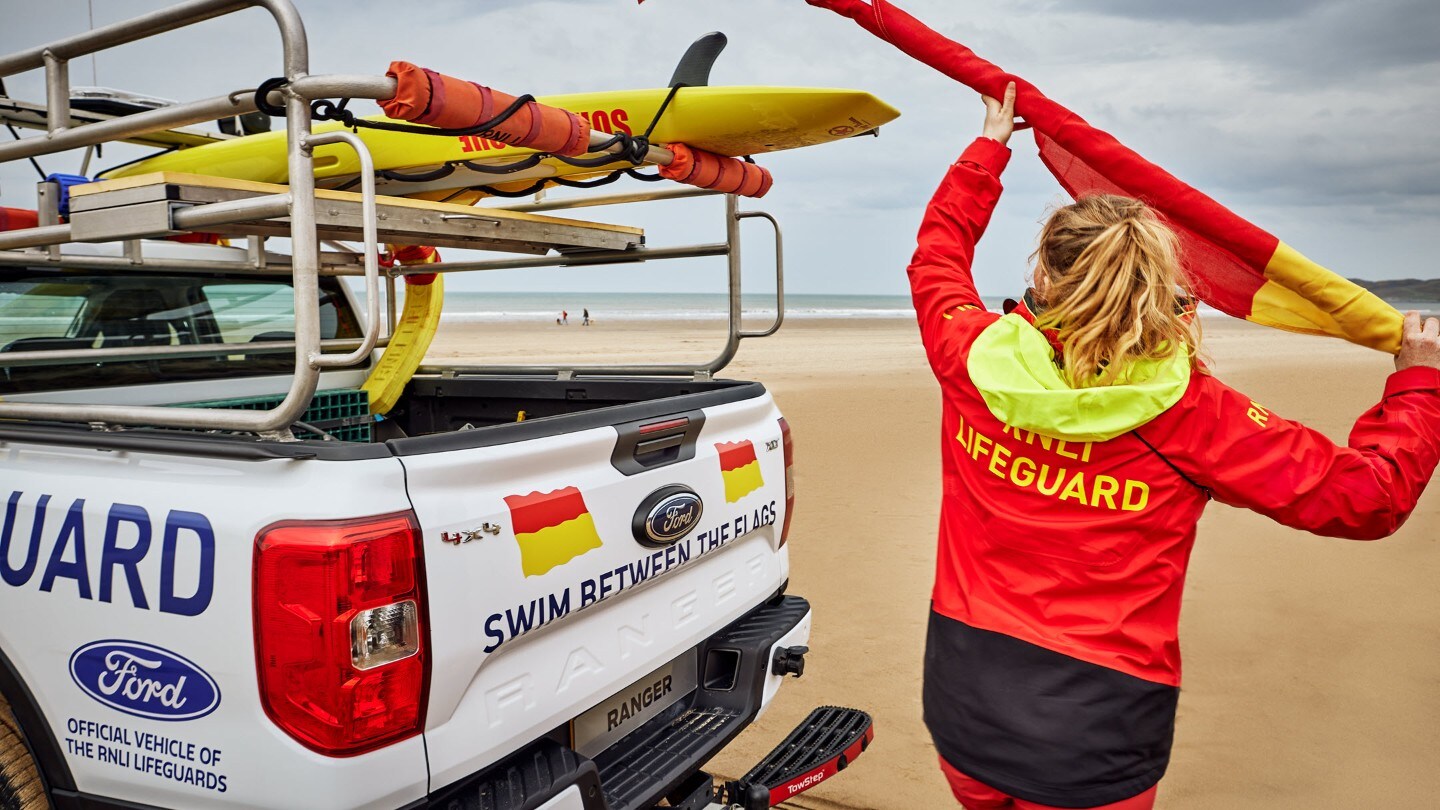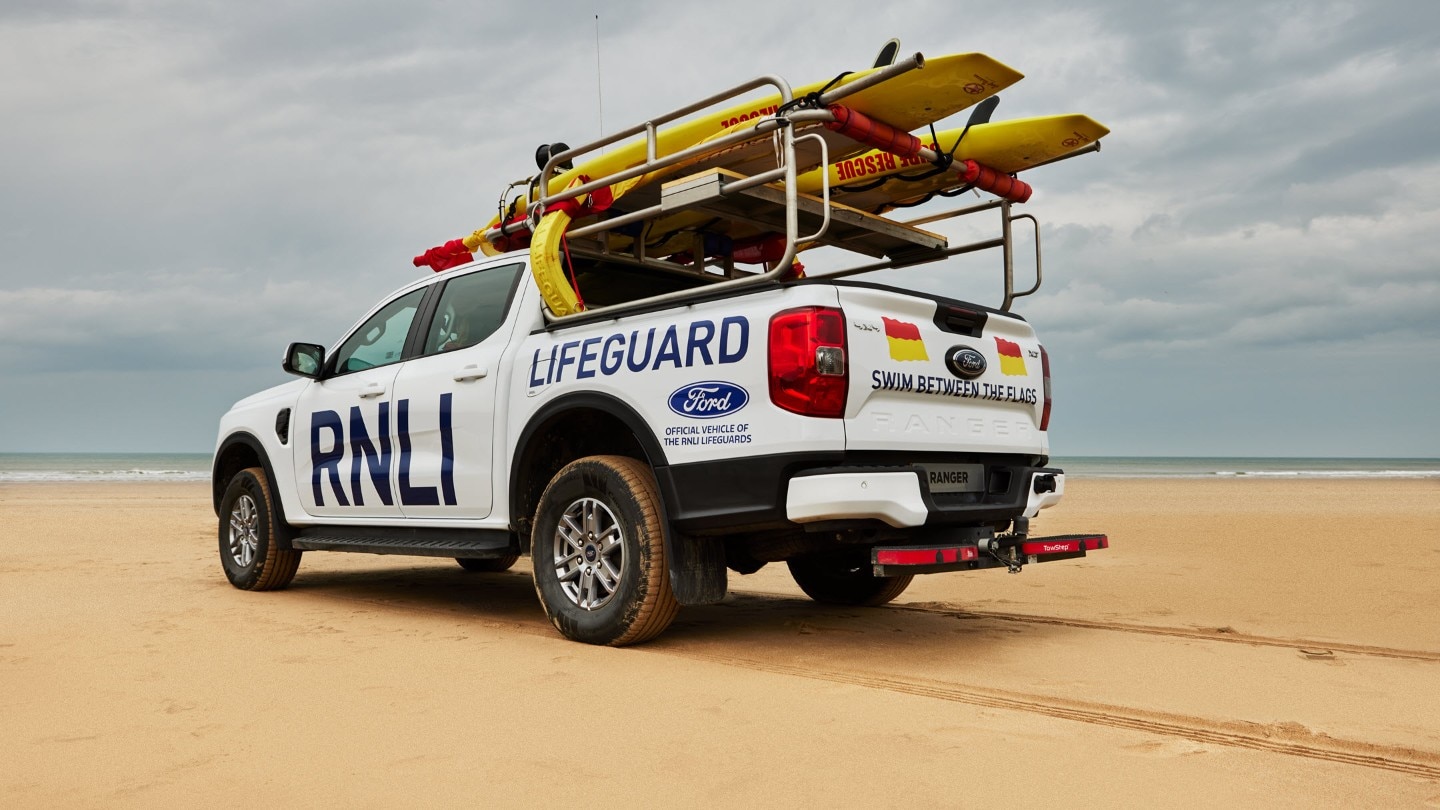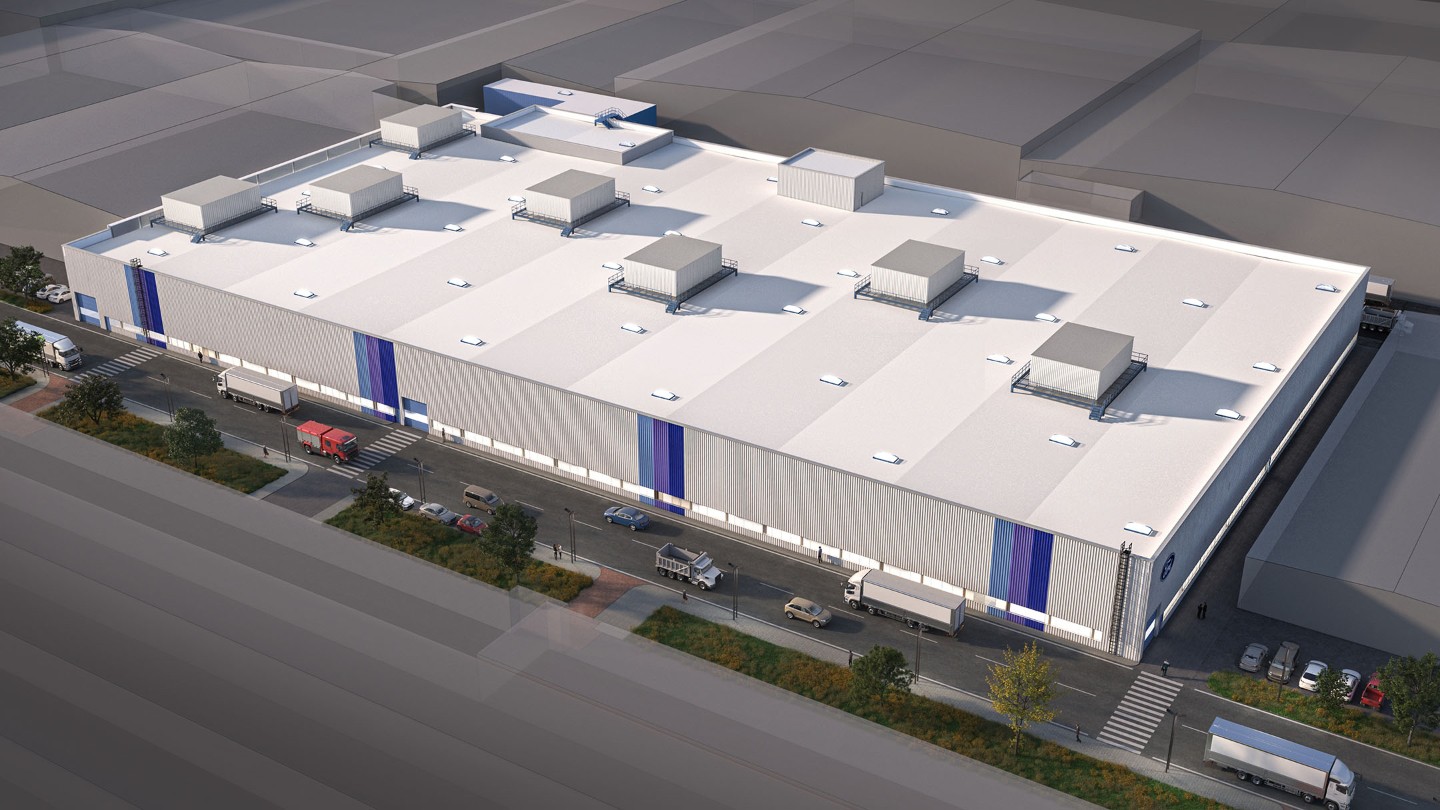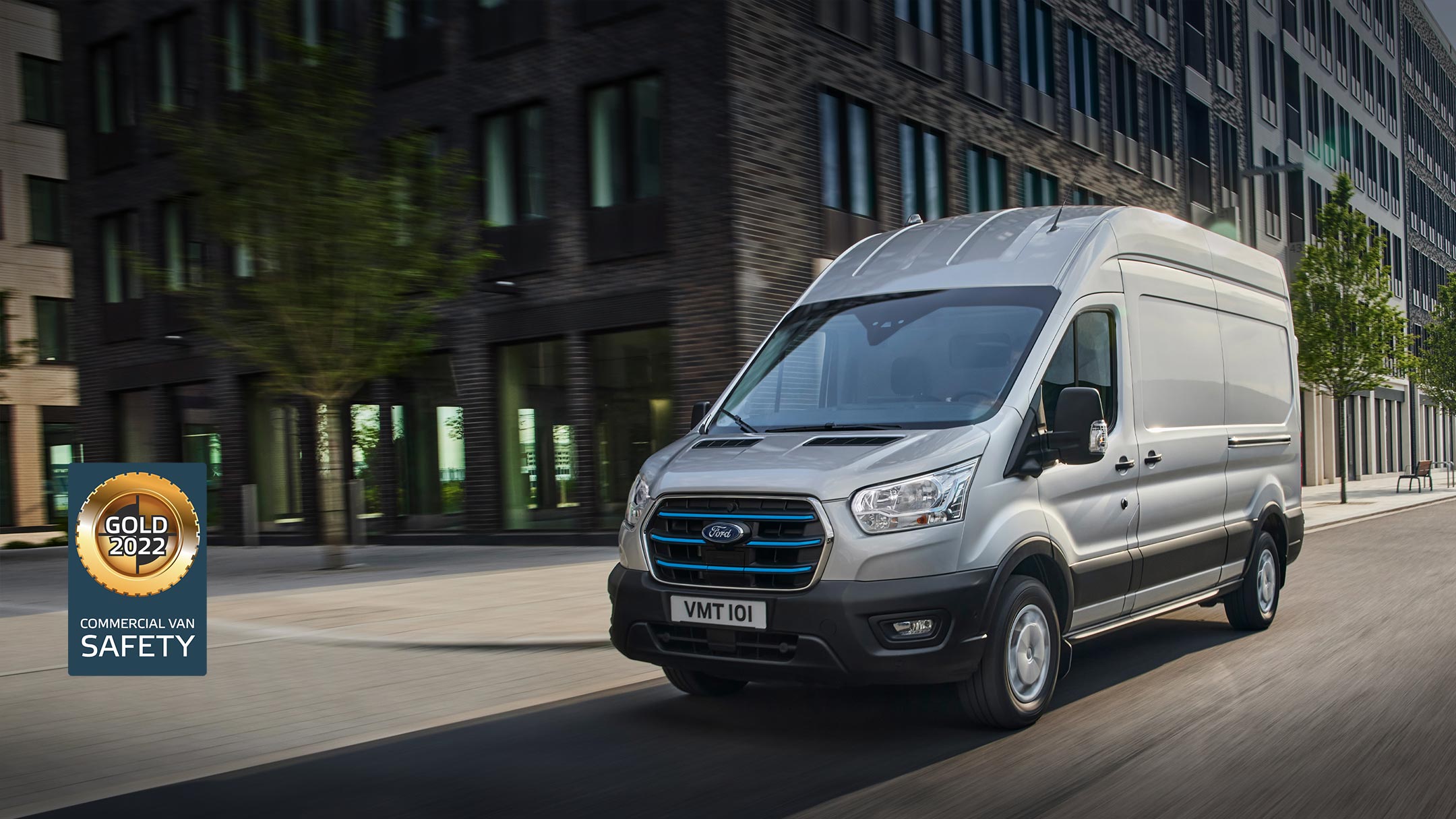Ford Ranger - Official Vehicle of the RNLI Lifeguards
For six years, we’ve been committed to supporting the Royal National Lifeboat Institution (RNLI), to help save more lives at sea. In 2020, we supplied the majority of their vehicle fleet, with the Ford Ranger becoming the RNLI’s go-to beach vehicle.
Now in 2025, we’re proud to supply the roll out of new and updated Ford Rangers across RNLI Lifeguarded beaches, cementing its position as the official vehicle of the RNLI Lifeguards.
Updated vehicles will be deployed across selected UK beaches as it is now an essential part of the RNLI’s day-to-day patrols. Its impressive off-road agility, exceptional towing power and outstanding load capacity makes it the four-wheel drive that helps save lives.
Mandy Dean, Commercial Vehicle Director, Ford of Britain and Ireland - “We are delighted to continue and expand our role in supporting RNLI Lifeguards, and the outstanding work they do. Seeing new Ford Rangers being deployed across select UK beaches shows the all-round dependability of the vehicle to meet the requirements of the RNLI Lifeguard role.”
